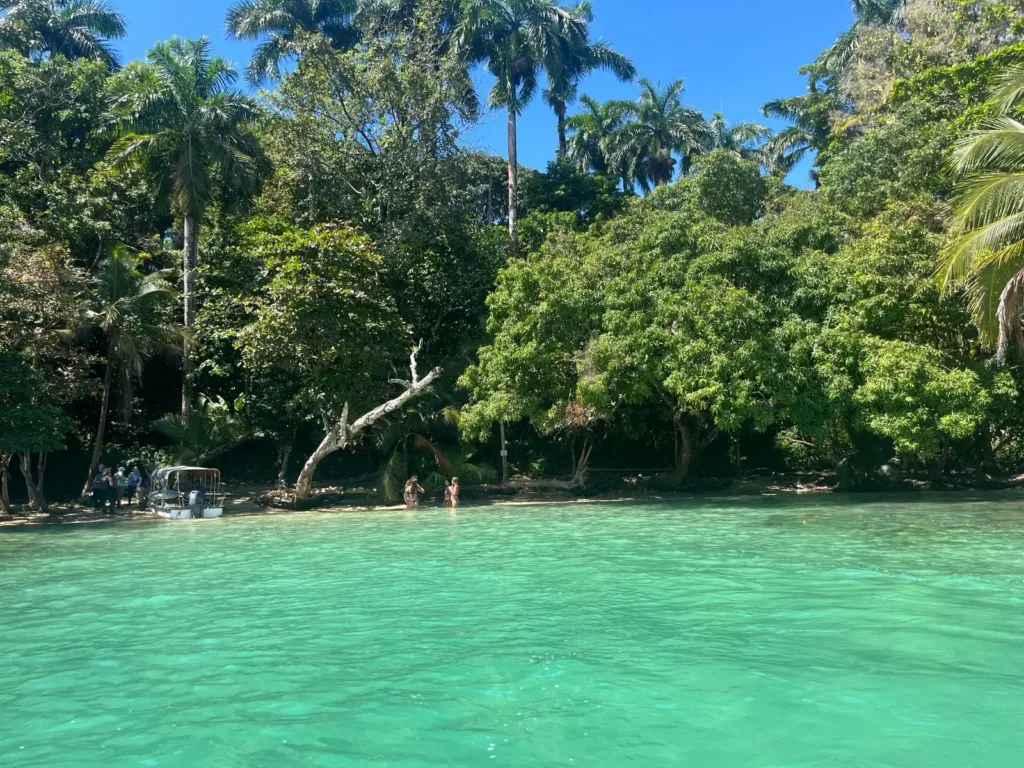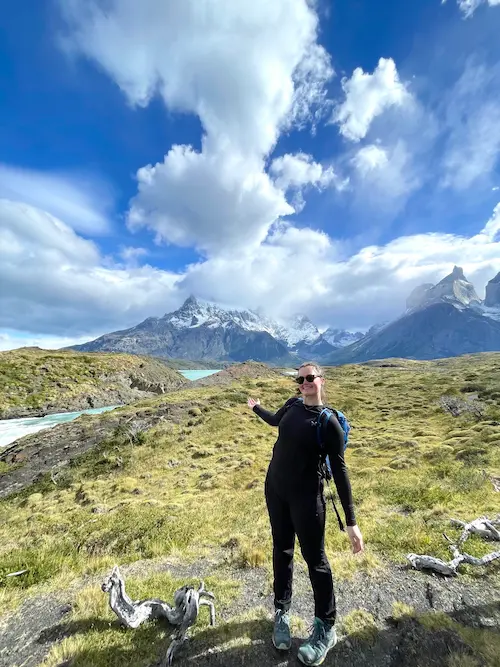Beyond the Classroom
Beyond the Classroom: Directed Research at the SFS Center for Rainforest Studies
From studying dung beetles on the ground to birds in the sky, and all of the trees in between, SFS Australia students have been busy as ever doing their part in adding to our understanding of the rainforests of Far North Queensland. In addition to the valuable data each research team is collecting and synthesizing, our students have also had the opportunity to flex their skills in critical thinking, problem solving, and teamwork as they examine complex environmental issues through the lens of the scientific method.
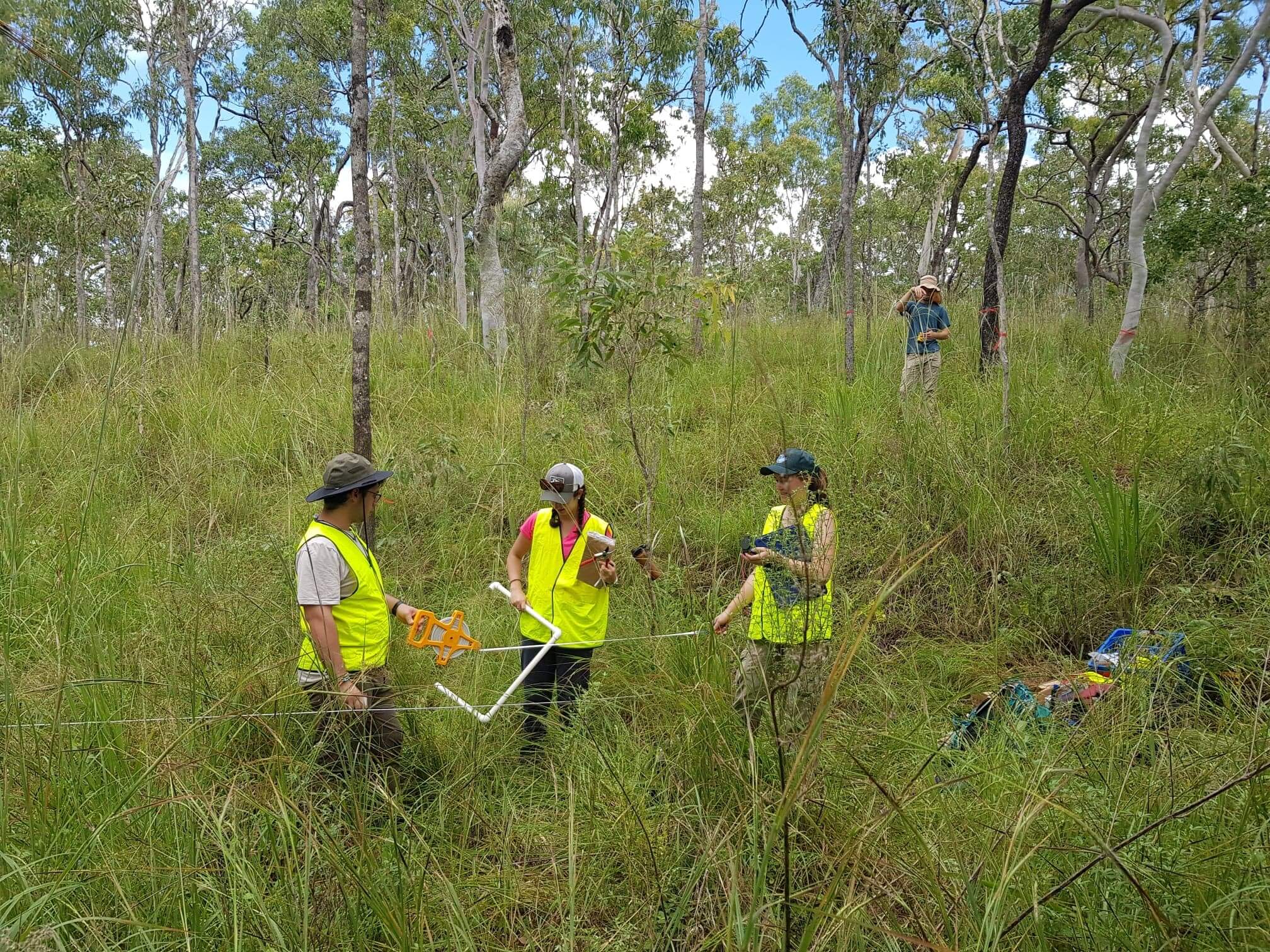
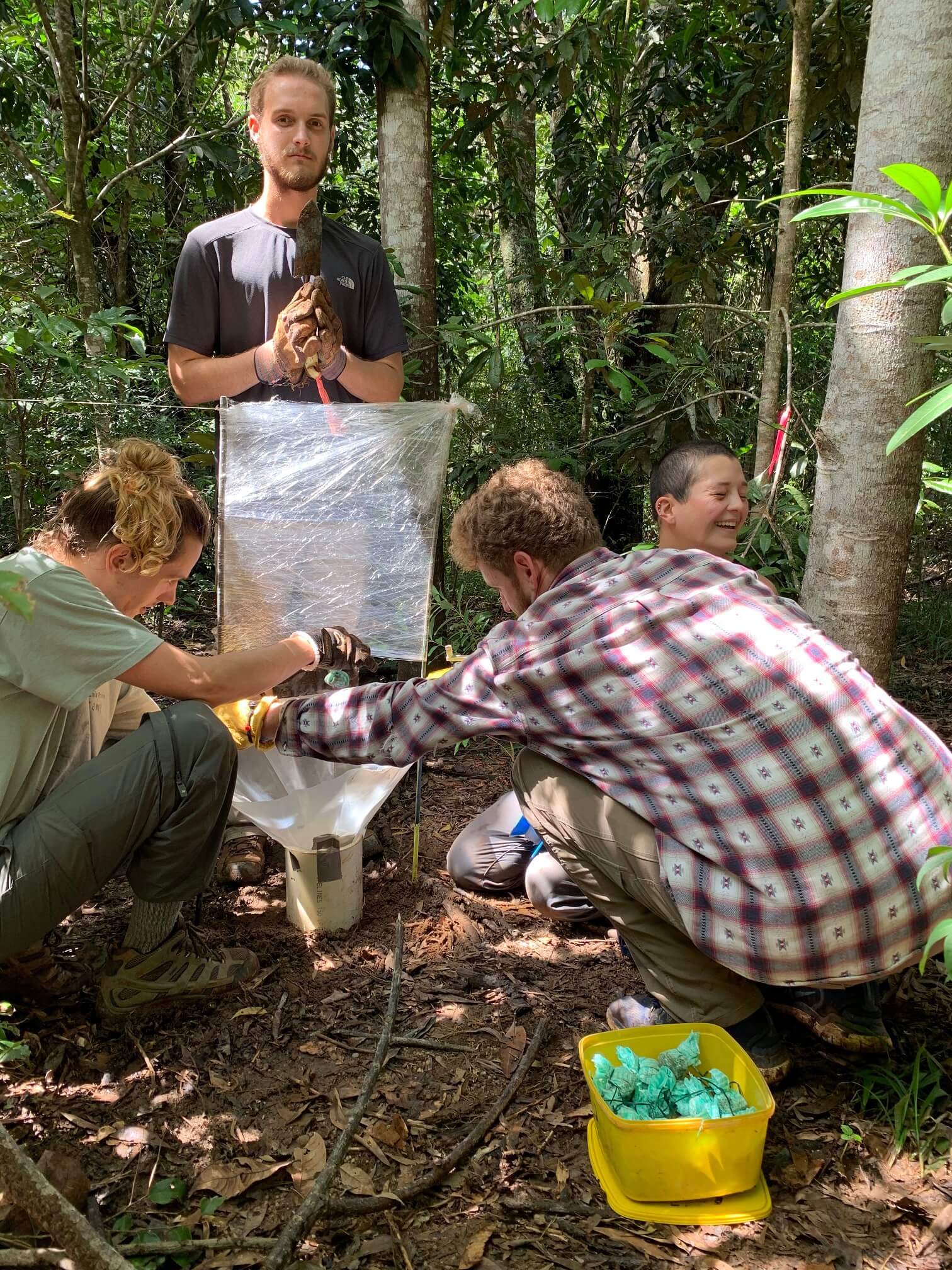
Students working with Dr. Siggy Heise-Pavlov have been exploring a wide range of topics regarding dung beetle populations in revegetation areas around the Atherton Tablelands. In the field, students placed different types of dung beetle traps in various types of revegetated forests. By collected beetles from these traps, students were able monitor dung beetle diversity, abundance, the effectiveness of different styles of traps, and beetle behavior. As an indicator species, dung beetle behavior and population numbers can give researchers critical information about the overall health of an ecosystem. Students have also been working on developing an effective water quality monitoring program in the Tablelands by assessing different water testing sites near the Center that may allow future researchers to identify important trends in environmental health.
Our “early bird” students working with Center Director Dr. Amanda Freeman have been up at 6am every day looking for Grey-Headed Robins! These determined students are interested in examining what types of habitats grey headed robins and other endemic bird species prefer. Every morning and afternoon, students listened to the types of birds singing, noting their location and making observations about the vegetation of the surrounding area. This research will be helpful in future conservation efforts by providing data-driven recommendations about protecting habitats conducive to the growth of the populations of these birds.
Our final DR group has been working with Dr. Catherine Pohlman studying the forest structure of rainforest ecotones. Ecotones are transitional areas between two biological communities and are important because they provide important ecological services such as niche habitats and can be early indicators of larger environmental changes. Dr. Pohlman’s students measured tree DBH, recorded tree and shrub species diversity, and performed grass surveys in a series of study plots that spanned transitional areas between rainforest and savanna ecosystems. As our climate continues to change and Northern Australia experiences different patterns of phenomena such as wildfires and cyclones, it will be essential to understand how different types of ecosystems interact with one another and either grow or shrink in response to such changes. This will give us the opportunity to ensure that there is appropriate habitat for the huge diversity of plant and animal species that currently reside in this special corner of the world.
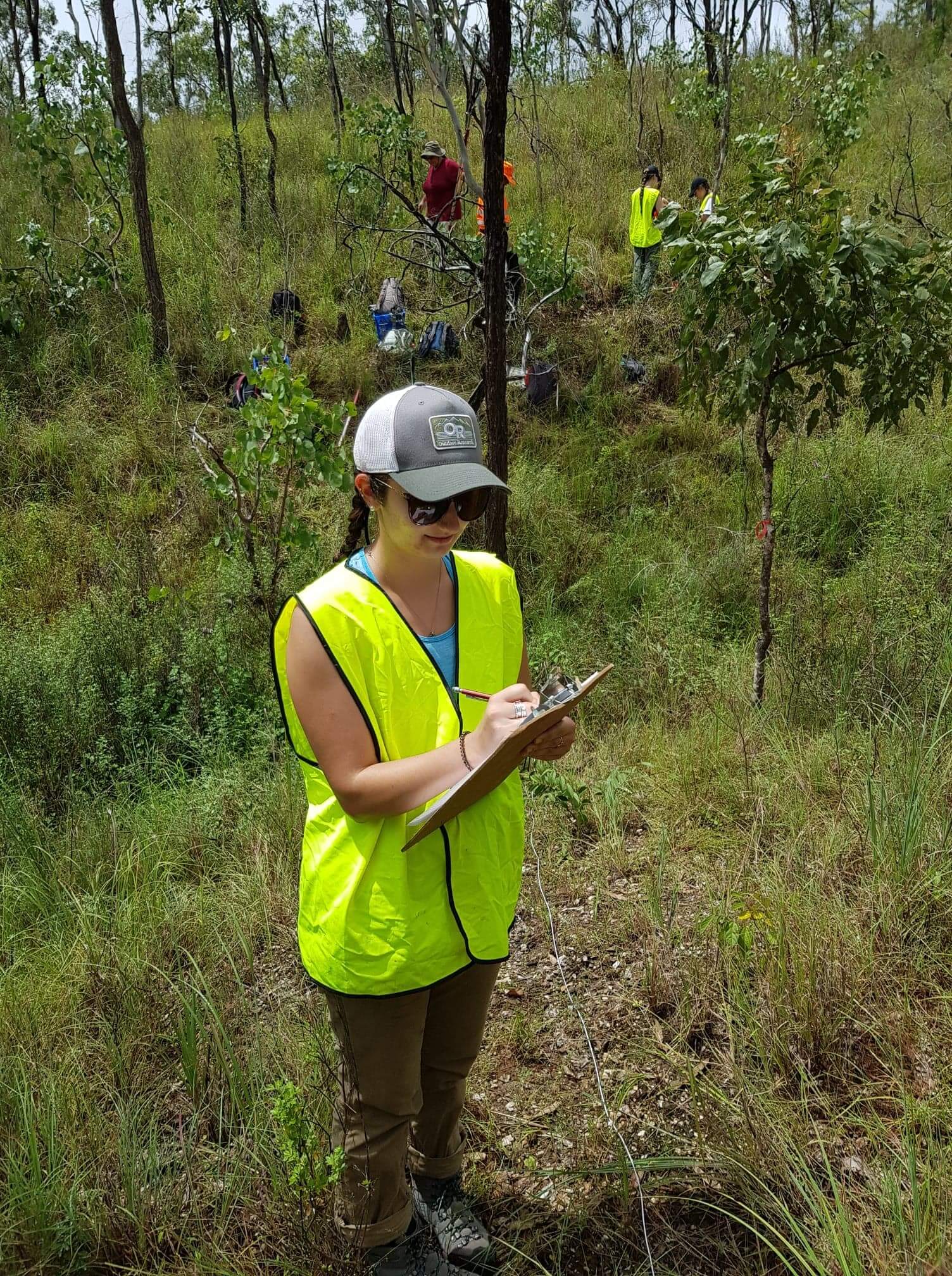
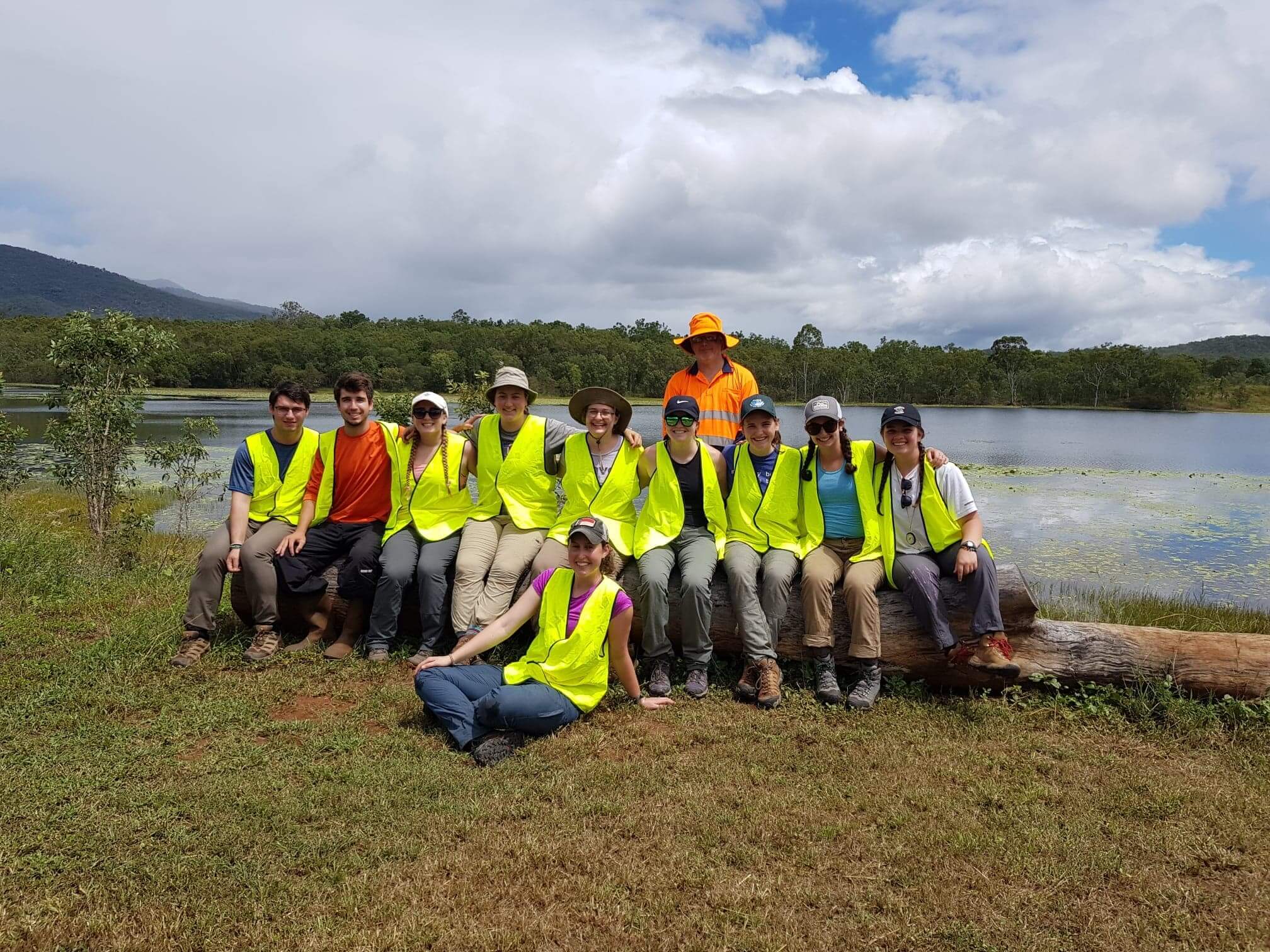
Students at the Center for Rainforest Studies have waited in the rain to catch a glimpse of a robin on early mornings, have painstakingly collected and identified beetles caught in traps they built themselves, and have trekked across hot areas of savanna to collect grass samples. They have given their all to their research and are now excited to be able to share their findings, and their recommendations for stewardship, with both their professors and with the wider community of the Tablelands in order to do their part in protecting this beautiful place they have been lucky enough to call home this semester.
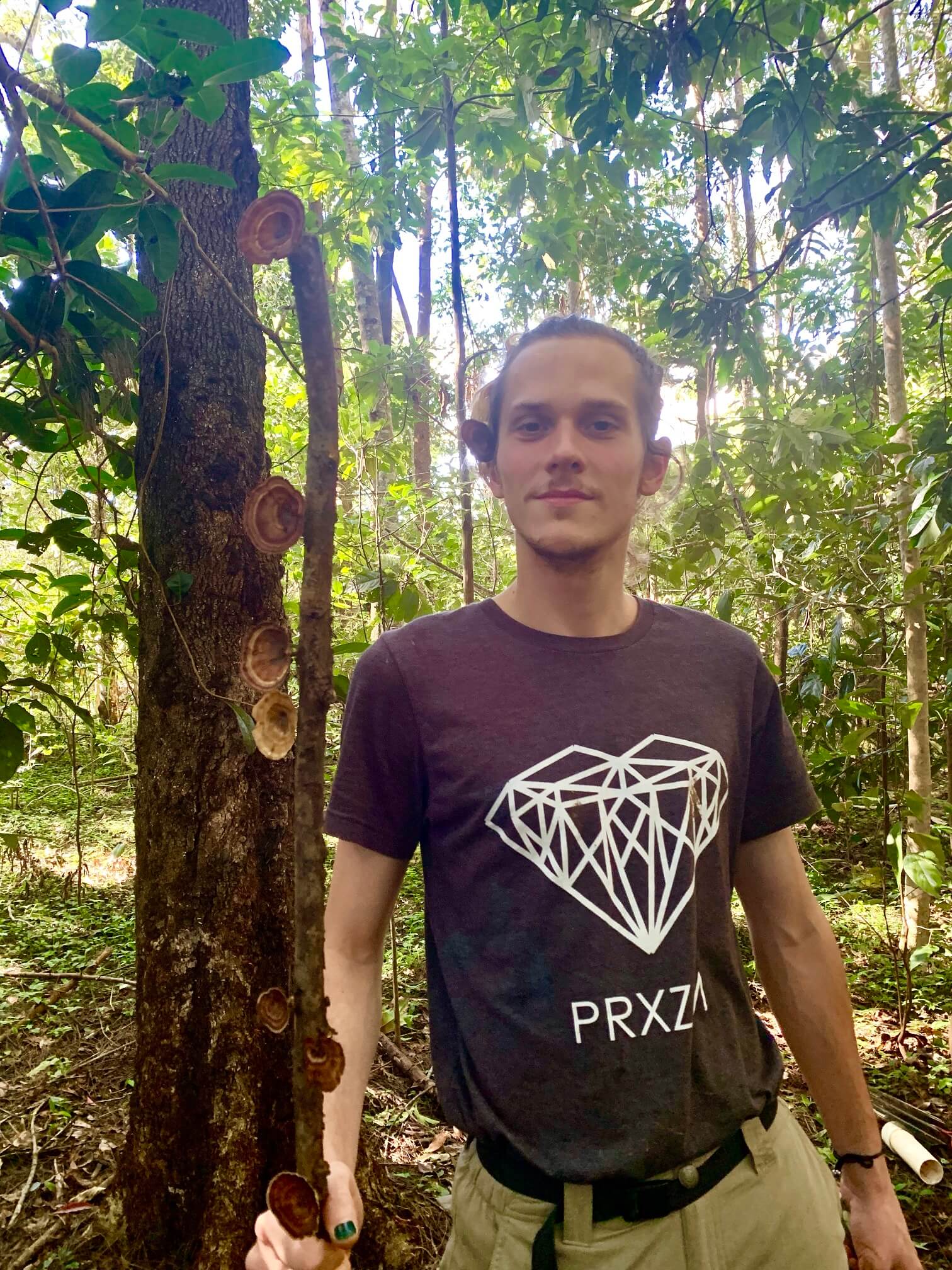
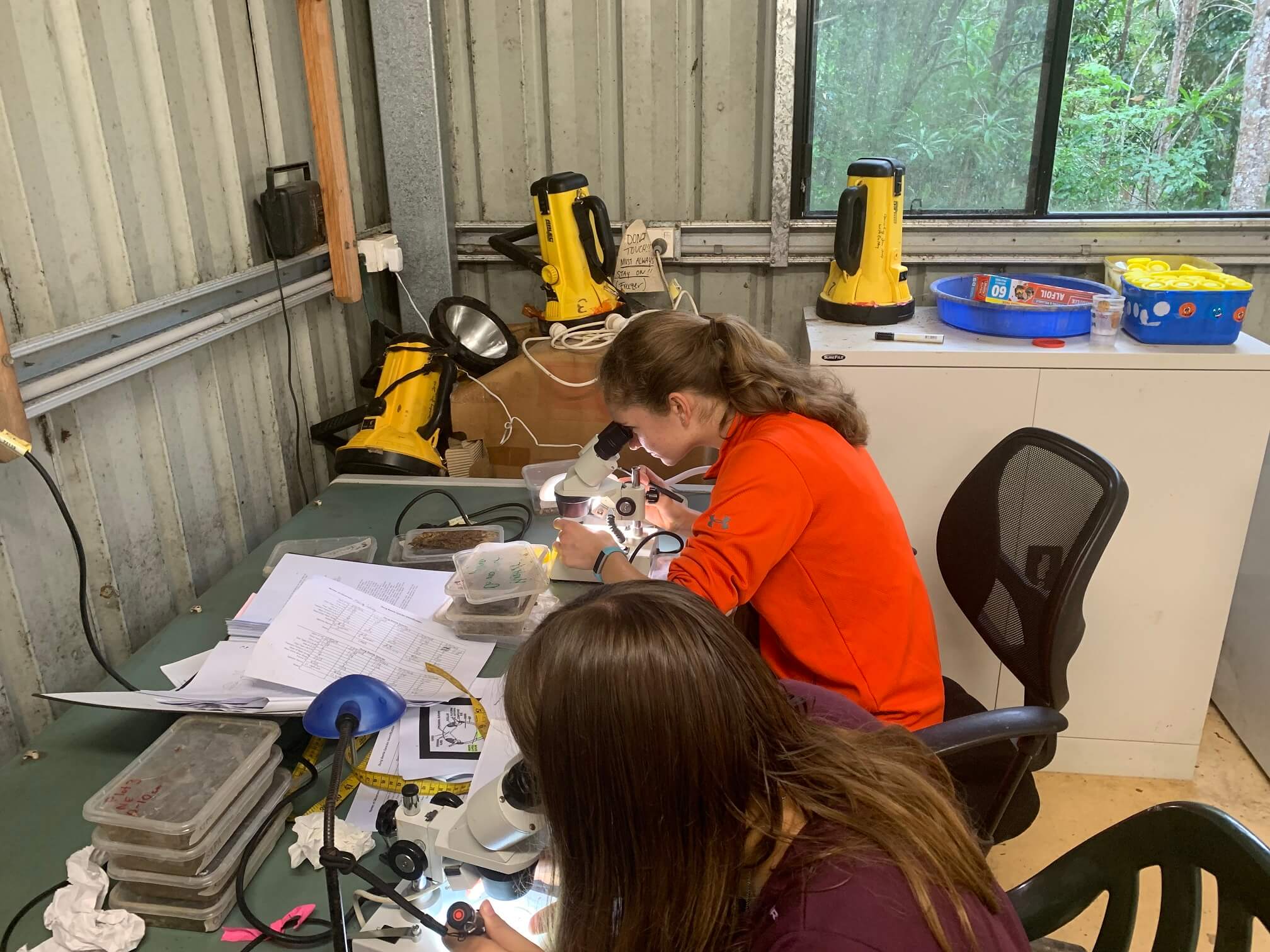
Related Posts

